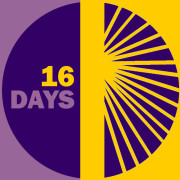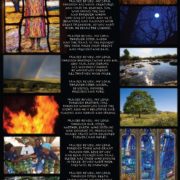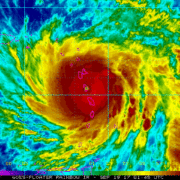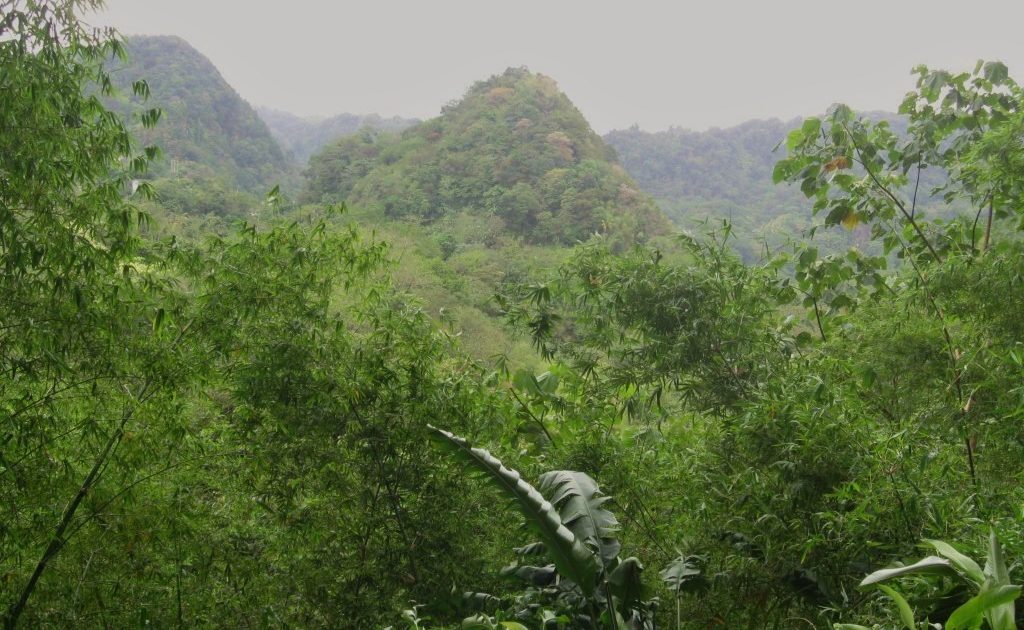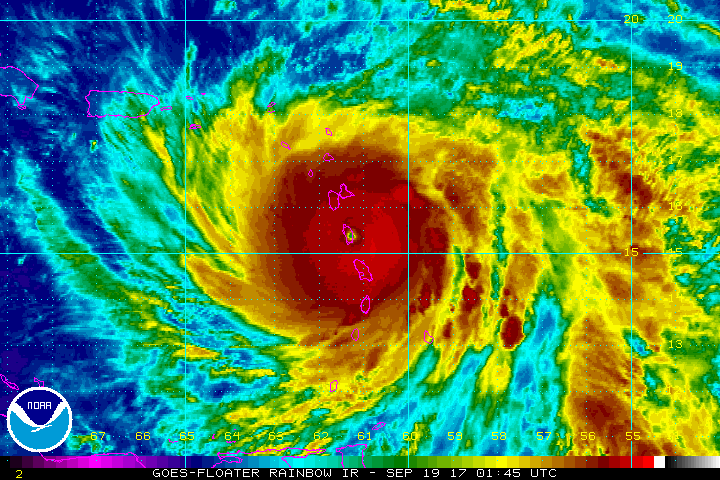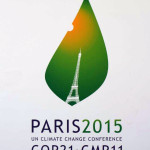This week:
- The Paris Agreement
- International Migrants Day – Welcome the Stranger
As we prepare for the coming of Christ, we encounter, in this week’s Revised Common Lectionary readings, the Virgin Mary’s magnificent hymn of praise to God, often called the Magnificat. Rejoicing in God’s faithfulness and abundant gifts, the song anticipates the overturning of the ways of the world. Can we take time this week to read it daily, rejoicing in the promises it offers and praying for the coming of the Kingdom?
____________________________________________________________________________
The Paris Agreement
“This is a small gavel, but I think it can do great things” said Laurent Fabius, the president of the Paris climate talks, as the conference formally adopted the Paris Agreement.
Was he right? Throughout this year, people have been asking us: “Is this climate conference going to be different from all the failures?” “Can we stay below 2 degrees?” “And is there hope?”
Here are our thoughts, for reflection and prayer, on how the Paris Agreement relates to those questions. Read the top line to get the basics, the paragraphs underneath to get more detail, and the box at the end for prayer points.
Even without an agreement, Paris would have been different from previous climate talks.Two things stood out before the conference even started. Firstly, the climate action plans (INDCs) that countries had submitted, while not enough to hold temperatures below 2 degrees Celsius (best estimates are 2.7 to 3.7 degrees), are enough to bring us out of the disastrous “business as usual” trajectory down which we’ve been heading. And secondly, Christiana Figueres and the Peruvian (COP 20) and French (COP 21) teams did an amazing job of bringing a wide range of groups into the UNFCCC process – not just the nation states that are ‘parties’ to it, but also businesses, civil society groups, financiers, faith groups, cities and regional governments. Many of these are moving faster towards a low-carbon world than nation states are. Their inclusion both reinforced the importance of these groups’ own efforts – the renewables initiatives launched were particularly notable – and also created an environment where action seemed possible.
And now we have the Paris Agreement – the first universal climate treaty, including some 195 countries. That really is a difference … and has wider significance. As UN Secretary-General Ban Ki-moon noted, “every country in the world,” not just the developed countries, “has pledged to curb their emissions, strengthen resilience and act internationally and domestically to address climate change.” And while the document itself is far from perfect it has been agreed by all the parties in an unprecedented display of cooperation. Again, good process helped: the French and the UNFCCC Secretariat did a brilliant job in their diplomacy. But to get an agreement, there had to be a general will for shared, multilateral action – a sense that blocs that have long held very different positions could work together and that at least some level of solidarity was possible. In an often fragmented world, the fact that countries had that sense and were prepared to act on it offers hope … and not just for the fight against climate change.
The Paris Agreement leaves the door open for us to stay well below 2 degrees – and indeed possibly at the 1.5 degree limit. Since Copenhagen, countries have been saying that the goal is to hold warming below 2 degrees above pre-industrial levels. Some scientists, however, feel that the pace of dangerous impacts increases well before we reach 2 degrees (cf this article) – and vulnerable states, such as the Pacific islands, have argued that for them a 1.5 degree goal is a matter of survival. The agreement sets a clear goal of keeping the global average temperature rise well below – not just below – 2 degrees above pre-industrial levels and “pursu[ing] efforts to limit the temperature increase to 1.5 °C above pre-industrial levels, recognizing that this would significantly reduce the risks and impacts of climate change.”
The agreement signals a clear shift towards a low-carbon world. The temperature target is ambitious and can’t be met unless there’s a significant and relatively rapid shift in how we produce and use energy. While some are waiting to see what actions countries take, there’s a sense in many quarters that the agreement – combined with the announcements on funding for renewables made earlier during the talks – sends a clear signal that the future lies with clean energy, and that coal in particular has no future. That changes the narrative about what is ‘realistic’ and should trigger investment flows into low-carbon, rather than high-carbon technologies.
But the agreement needs to be hugely strengthened over time to keep us well below 2 – let alone at 1.5 – degrees … and time is short. The concrete detail on how we achieve the temperature goals doesn’t match the goals’ ambition. The agreement mentions achieving global peaking of greenhouse gas emissions “as soon as possible” without giving a specific target. It talks about achieving a “balance between anthropogenic emissions by sources and removals by sinks of greenhouse gases” in the second half of the century. And it talks about getting countries to up the ambition of their emissions targets on a regular basis, starting with a dialogue in 2018 and with regular stocktakes every five years from 2023 onwards. These all represent progress – but they’re not yet strong enough: Professor Myles Allen, for example, argues that to stabilise at 1.5 degrees, we would need emissions to peak now, and commitments to increase radically very soon. That said, getting the upward review mechanism was a triumph, and one that had looked unlikely not all that long ago. And its existence allows for stronger, faster action.
There’s more work to be done on climate finance, too. The agreement reaffirms the pledge from developed countries to mobilise $100 billion a year by 2020 to enable developing countries to adapt to climate impacts and to undertake clean development. It extends the commitment to provide $100 billion/yr until 2025 and sets that figure as a floor for climate finance to be undertaken by “the parties” (ie potentially not just developed countries) from 2025 onwards. It also invites those developing countries that are in a position to do so to contribute earlier to climate finance for those who are poorer.
That’s better than it might have been – but the language is pretty woolly, and it’s unclear how it will be implemented. Two big questions are (a) what counts as “climate finance,” which is very contentious, and (b) the impact of climate finance on other areas of aid. The key here feels as if it will be both convincing developed countries that climate finance is actually an area of opportunity – the more resilient the world becomes, the more everyone benefits – and ensuring that we don’t see climate finance pledges met by the kind of diversion of aid funds that leaves other priorities wanting. And yes, while those figures sound huge, they’re not really adequate to the task – can countries be convinced to mobilise more?
And while it was great to see ‘loss and damage’ enter the agreement, there needs to be some money behind it. The developing countries most vulnerable to climate impacts were glad to see a separate article for ‘loss and damage’ – which recognises that some vulnerable countries will suffer climate-related losses (irreparable impacts) and damages (reparable impacts) that go beyond anything to which they can adapt. It’s an important recognition of the reality of their situations. The agreement also invites cooperation to help them cope – but there’s not much concrete in the way of funding.
Overall, we’d call the agreement a framework for hope. As climate activist Bill McKibben said, “This didn’t save the planet but it may have saved the chance of saving the planet.” A universal agreement means that climate change is no longer some people’s issue – it’s everyone’s issue. There’s a clear acknowledgement that the time for discussing climate change as if it were hypothetical or uncertain to exist is over. And there’s a framework for action – the various goals give us something with which to hold governments, businesses and ourselves to account.
If countries implement what they’ve agreed to and take stronger, rapid action on emissions cuts and financial pledges; if the agreement inspires action for climate justice at every level – from the most local to the global … then we can look to a very hopeful future.
We all are a vital part of helping to fulfil that hope. What we do now – in terms of our own lifestyle choices, our advocacy with government, our prayer and our continuing to work with other Christians and others around the globe – really matters. It will not only make a huge difference locally, but will also help our countries to take the steps they need to take. And each country’s steps make it easier for other countries to take their own steps. We can be part of building a virtuous cycle.
For those of us in the UK, that’s a particularly important role right now. One of the few sadnesses of the COP was realising the extent to which the UK was seen as having gone from being a leader on climate change to being a country that was backtracking on commitments. If that’s going to change, we need to be among those who are changing it. We have our calling to care for creation and for our neighbours; we have the Paris Agreement; we have each other; and we have hope in God, who created and loves the world. Change is possible.
Christian leadership mattered at Paris. Our prayer and action as Christians mattered at Paris. And both will continue to matter.
Both before and at the climate talks, Christian leadership helped to reframe the negotiations – to move them away from being simply about economic options, historic and future responsibilities and power dynamics towards a vision of a future in which care for creation and care for our neighbour is at the heart of our common action. The best-known contribution was the Pope’s Laudato Si’, the impact of which is well documented. But contributions from the Greek Orthodox patriarch, the Lausanne Movement, the Anglican Communion bishops, the Lutheran World Federation, the reformed churches, Methodists, Baptists, and the churches of France working ecumenically (just for a start) were also vital.
But it wasn’t just about leaders.
“To those who walked, to those who prayed … ” this is the opening of Christiana Figueres’ “Open Letter of Gratitude to All” who helped work for the Paris Agreement. Figueres was moved to tears when faith leaders, including church leaders, met with her after celebrating the climate pilgrimages to Paris and handed over faith group petitions, signed by almost 2 million people. The knowledge that people were praying clearly mattered to her – and to the talks.
As Christians, our prayer was a response to God’s loving outreach to humanity and encompassed both petition and an act of witness: by it we laid our concerns before our all-powerful and all-loving God, attested to our faith in God, spoke about God’s role in creation, and recognised God’s call to the churches to care for creation.
We were praying for an agreement that, as Pray4COP21 put it would “help the whole global community to put aside selfishness and to walk together in ways that bring peace, show love for neighbours near and far, and reconcile us all with the beautiful creation that God has given us to cherish.” The Paris Agreement is far from perfect, but it has the potential to offer that help. Now we pray that its potential may be realised.
Our prayers are taken from the final prayers of Pray4COP21. Please:
- Give thanks for the precious gift of Creation and our neighbours with whom we share it:
- Pray that this agreement will truly help us to care for our common home and for each other.
- Give thanks for the skill and commitment of the UN and French teams who guided the COP21 conference, and for the sense of cooperation that made countries willing to work together
- Pray for the next steps along the journey that goverrnments and others must take. Ask that God will guide them in fulfilling their commitments justly and in raising their ambition to meet the needs of the world.
- Pray for the next steps along the journey that each of us must take, asking God to give us the grace to speak and live in ways that reflect God’s love and justice,
- Pray that we can work together for God’s glory, the good of the earth and the good of all our neighbours.
From “A Christian prayer in union with creation”
Triune Lord, wondrous community of infinite love,
teach us to contemplate you
in the beauty of the universe,
for all things speak of you.
Awaken our praise and thankfulness
for every being that you have made.
Give us the grace to feel profoundly joined
to everything that is.
God of love, show us our place in this world
as channels of your love for all the creatures of this earth,
for not one of them is forgotten in your sight.
Enlighten those who possess power and money
that they may avoid the sin of indifference,
that they may love the common good, advance the weak,
and care for this world in which we live.
The poor and the earth are crying out.
O Lord, seize us with your power and light,
help us to protect all life,
to prepare for a better future,
for the coming of your Kingdom
Of justice, peace, love and beauty.
Praise be to you!
Amen.
Pope Francis, Laudato Si’, contributed to Pray4COP21 by the Global Catholic Climate Movement |
International Migrants Day: Welcoming the Stranger
This past Friday, 18th December, was International Migrants Day. With so much attention being paid to migrant routes through the EU we may feel well acquainted with the issues. But refugees in Europe are only a small part of the global picture (and even the local one).
The majority of migrants are not refugees (those who have fled their home countries because of conflict or persecution) nor are they forced migrants (a broader category including both refugees and those forced to move due to extreme poverty, climate change or natural disasters). At the close of 2013 UN figures estimated that there were 235 million migrants globally. Most were economic migrants seeking employment. Many are simply pursuing work in countries with similar economies and opportunities to their own. But just over one third were moving from South to North, from regions with an average wage of $3,300 to nations where wages average just over ten times that figure. As inequality increases these numbers are increasing. Often their increased earnings go to fund family in their home countries. Figures from 2006 show that migrants sent home $300 billion (often in small amounts of $100 or so), almost three times the amount developed countries gave to developing nations in aid that year.
Forced migration is also increasing rapidly. It is well know that the violence in the Middle East, Afghanistan, Pakistan and North Africa has swelled the number of refugees to around 60 million, the highest figure on record. But the problem is not only the significant numbers of displaced people, but that people are remaining in poor temporary accommodation (including refugee camps) for long periods of time and their chances of returning home are becoming less likely. In Al Zaatari refugee camp in Jordan 80,000 Syrian refugees are living in temporary accommodation, some for up to 3 1/2 years. But it is Africa which has the greatest number of refugees and some of the longest displacements. Dadaab refugee camp in Kenya hosts 400,000 refugees (mostly Somali) and is 24 years old. Many residents of these camps are unable to move home or to move on to a more permanent living situation. Last year 126,800 refugees (globally) returned to their home country and 103,000 were permanently settled by the UN but 6.4 million were known to be living in long term (5 years or more) exile without a permanent solution.
It is clear that those who are currently displaced by conflict, persecution or climate change (a factor which is expected to force between 50 and 200 million from their homes by 2050) will continue to face challenges for many years as they are forced to find ways to live in host communities for long periods of time often without a permanent legal status, with inadequate accommodation, a lack of language skills, little money and poor employment prospects.
The significant and increasing numbers of migrants together with the relationship between migration and issues of trade, climate, conflict and human rights means migration will be a key global issue in the decades ahead. The Churches Commission for Migrants in Europe argues that migration should also be a central issue for the Church:
‘Thinking about migration is not a marginal theological undertaking but touches central points of every theological reflection: What is humankind? What does it mean to be obliged to this God of the Old and New Testament? How can our confused human history be reconciled with a divine plan? How are theology and ethics related? And what, after all, is the task of the church?’
In other words, a coherent and faithful Christian response to migrants begins with understanding our relationship to migrants in light of God’s creation and relationship to us. Any practical response we can offer should come out of this understanding.
Welcoming the Stranger
One strand of theological reflection around migration involves the idea of ‘welcoming the stranger.’
This is an ethical imperative we see throughout the Bible. In Leviticus 19:34, for example, we read that ‘the alien who resides with you shall be to you as the citizen among you; you shall love the alien as yourself, for you were aliens in the land of Egypt: I am the Lord your God.’
The central part of this verse (together with others, see Exodus 22:21, Deuteronomy 10:19)reminds us that the migrants ‘strangeness’ is actually a point of similarity for the Israelites who were also once migrants. In the New Testament we also see a sense of God’s people as a migrant community. Christians are to know themselves to be strangers in the world, a people who live in the world but are not of it, whose citizenship is in heaven (Hebrews 12:23). This understanding of ourselves as displaced people might encourage us to empathise with, and find common ground with, migrants. But it might also encourage us to hold our goods and land more lightly, knowing ourselves to be temporary guardians rather than owners.
Leviticus also reminds us that we are not to treat aliens or migrants according to their label, instead we are to treat them as citizens, as one of us. As numbers of migrants increase there is a tendency to forget that the headline figures are made up of millions of individuals with rich and varied identities with often tragic stories of loss and hardship. As countries struggle to deal with forced migrants they may also rely on labels (‘illegal immigrants’) which dehumanise and seek to place a distance between ‘us’ and ‘them’. For Christians our theology might encourage us to forgo unhelpful labels and seek to treat migrants as citizens, one of our own, with a shared identity based in our foundational belief that all are made in the image of God.
This verse in Leviticus also contains an implicit reminder that it was the Lord God who reached out to Israel and brought the people out of Egypt. In Christ we too know God’s movement towards us and our call to mirror that movement in seeking to be those who spread the good news, who reach out to others. As we seek to respond to migrants, it is right that we should step out in welcome and move towards those who are displaced, not wait for them to bring their needs to us.
This stepping out in welcome will not only be for the good of those we seek to serve. Responses to migration from the UN, development agencies and researchers have recently been seeking to emphasise the positive contributions forced migrant communities can make to their host countries (often with an economic focus). Pope Francis has also noted that migration is ‘a significant “sign of the times”, a challenge to be discovered and utilised in our work to renew humanity and proclaim the gospel of peace.’ As we seek to welcome the stranger we can also expect to reap rewards as we see God at work in restoring humanity.
Even if we accept the call to welcome the stranger, we might still ask what form this welcome should take. Whether a Christian response to migrants must entail open borders which allow free access for all. We hope to address these difficult issues soon, in the meantime you may wish to access the Bible Societies resource which looks at a number of ethical approaches to borders.
Please pray:
- for the safety and well-being of who have migrated, for whatever reason.
- that the church may witness to the dignity of all people by its welcome for all people
- that we may recognise our identity as pilgrims and migrants in this world, holding all things lightly except our faith
|
Some theological reflections on migration include:
Churches Together in Britain and Ireland, Asylum Theology
Churches Together in Britain and Ireland, Mission Migrants and Refugees
Churches Commission for Migrants in Europe, Theological Reflections on Migration: A CCME Reader
Jubilee Centre, The Famine, the Foreigner and the Threshing Floor [A reading of the book of Ruth in terms of immigration]
Pontifical Council for the Pastoral Care of Migrants and Itinerant People, The Love of Christ Towards Migrants

